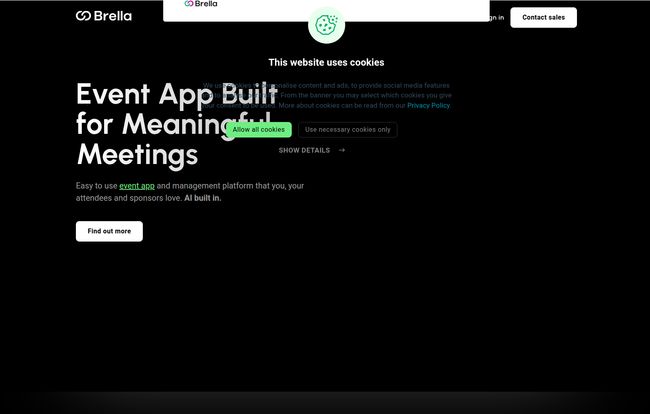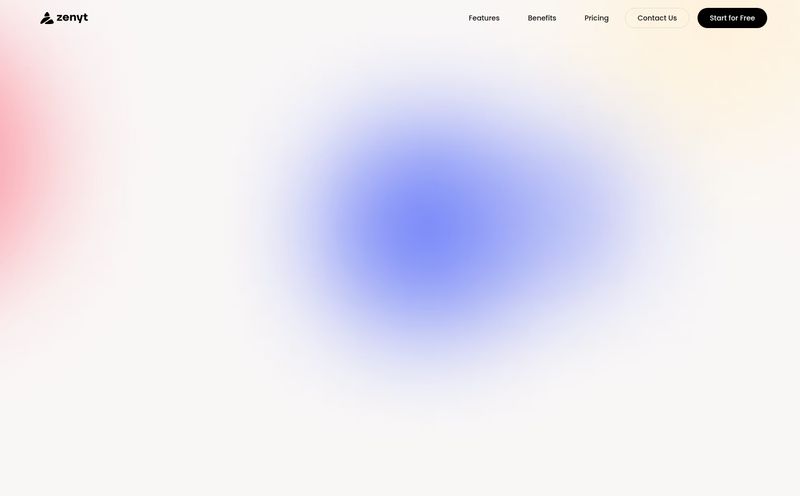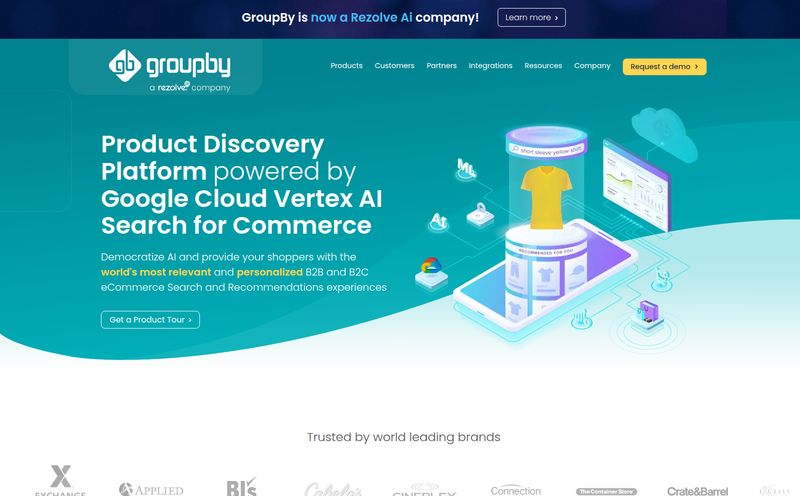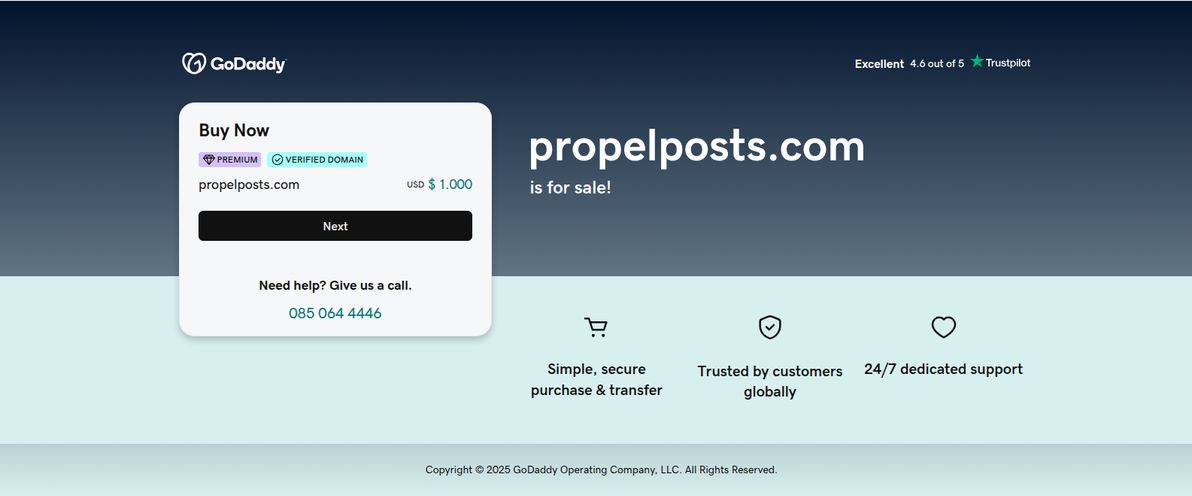I’ve been to a lot of conferences. A lot. And let’s be honest, for every mind-blowing keynote, there are at least three hours of awkward shuffling near the coffee station, trying to make eye contact with someone who looks vaguely relevant to your industry. We’ve all been there, clutching a lukewarm drink, scanning name badges, and hoping for a spark of genuine connection. It’s often the most valuable part of any event, and paradoxically, the part left most to chance.
For years, event tech felt like it was just solving logistical problems: ticketing, scheduling, maybe a clunky event app with a PDF of the floor plan. But the real magic, the human connection? That was on us. Until it wasn't. I've been watching the event platform space for a while now, and some tools are starting to finally crack the code on what matters. And at the top of my list right now is a platform called Brella.
It’s not just another app. It’s an entire ecosystem built around a simple, powerful idea: what if you could engineer serendipity? What if you could make networking less of a painful chore and more of a targeted, rewarding experience? I’ve been digging into it, and I have some thoughts.
So, What is Brella Anyway?
At its core, Brella is an all-in-one event platform. It handles the stuff you’d expect—ticketing, registration, session schedules—but that’s just the appetizer. The main course, the thing that makes it stand out in a very crowded market, is its intense focus on attendee engagement, AI-powered matchmaking, and proving sponsor ROI. It's designed for event organizers who are tired of just hoping their attendees and sponsors have a good time and want a tool that actively helps create that value.
Think of it less like a digital event brochure and more like your event’s digital maître d', not just checking names at the door but personally introducing guests who it knows will hit it off.
The Crown Jewel: Matchmaking That Doesn't Suck
Here’s the thing. Most event “networking” features are just a glorified attendee list. A digital rolodex. You scroll through hundreds of names and job titles, and it's on you to do the guesswork. It’s exhausting.
Brella’s approach is fundamentally different. Their claim to fame is a sophisticated, intent-based AI matchmaking system. Before the event, attendees and sponsors create profiles and select their interests and goals. Are you looking for a co-founder? Trying to find Series A funding? Hoping to hire a senior developer? You tell the AI what you want.

Visit Brella
The system then works its magic, suggesting high-relevance matches. It’s not just about matching “CEO” with “CEO.” It’s about matching “problem” with “solution.” It facilitates booking 1:1 meetings directly within the platform, either at designated tables or virtual rooms. This single feature transforms the entire experience from passive consumption to active participation. It gives every attendee a clear, actionable agenda for who they need to meet. For an industry veteran like me who has seen it all, this is a game-changer. It’s the difference between hoping for a good ROI on your ticket and having a tool to help you build it yourself.
Keeping Your Sponsors Genuinely Happy
Let's talk about the people who often foot the bill: the sponsors. For too long, the sponsorship model has been based on hope. “We’ll put your logo on a banner and hope the right people see it.” That’s a tough sell in a data-driven world. Sponsors today demand measurable ROI, and honestly, they deserve it.
Brella bakes sponsor value right into its DNA. It goes way beyond a simple logo in a virtual booth. Key features here include:
- Intelligent Lead Retrieval: Sponsors can scan badges (or virtual profiles) and instantly get contact info, but more importantly, they get the context of why that person is a good lead based on the AI matching.
- Hosted Buyer Programs: You can create exclusive, curated experiences for top-tier sponsors to meet with a hand-picked list of high-value attendees. It’s targeted, efficient, and incredibly valuable.
- Detailed Analytics: Sponsors can see real data on booth traffic, interactions, meetings booked, and leads generated. They leave with a report, not just a tote bag.
This shifts the conversation from “brand awareness” to “pipeline generation,” which is a language every sales and marketing leader understands. It makes renewing that sponsorship a much, much easier decision.
A Look at the Nitty-Gritty Features
While the matchmaking and sponsor tools are the stars of the show, the supporting cast of features is just as strong. A platform can’t survive on two cool ideas alone.
A Platform That Plays Nicely with Your Tech
No event runs in a vacuum. You've already got a CRM, a marketing automation tool, and a dozen other pieces of software. The last thing you need is a walled garden that doesn't communicate with anything. Brella gets this. They offer a range of integrations with big players like Salesforce, Marketo, and Hubspot, plus a robust API for custom connections. This shows a maturity and undertsanding of the modern marketing stack that I really appreciate.
Branding That’s Actually Your Branding
This might seem like a small thing, but it’s not. Brella offers deep customization, including white-labeling and the ability to use your own domain. Your event app shouldn't feel like a “Brella event”; it should feel like your event. This level of brand control is critical for creating a cohesive and professional experience from the first touchpoint to the last.
The Human Element: Consultative Support
One of the things I picked up on is that they don't just throw the software at you and wish you luck. They position their service as consultative. They have a high Net Promoter Score (NPS), which is a fancy way of saying their customers are really happy and willing to recommend them. In my experience, when you're in the trenches of event planning, having a responsive and knowledgeable support partner can be the difference between success and a complete meltdown. This human touch is a significant, if less tangible, benefit.
The Elephant in the Room: Pricing and Potential Downsides
Alright, let's get real. Is it all sunshine and perfectly matched meetings? Not entirely. First off, if you go looking for a pricing page on Brella's website, you won't find one. This is pretty standard for enterprise-grade SaaS platforms. They operate on a custom quote basis, which means you have to contact them for a demo and a price tailored to your event's size and needs.
Is this annoying? For someone who wants a quick budget check, yes. But it also means you’re not paying for features you dont need. It’s a double-edged sword. My gut tells me this platform is positioned for serious B2B events, tech conferences, and trade shows—not for your local book club meetup. If you're on a shoestring budget, this probably isn't your first stop.
Secondly, with a platform this powerful, there can be a learning curve. To get the most out of the AI and the sponsor tools, you and your team will need to invest some time in setting things up correctly. It's not a plug-and-play solution, but the most powerful tools rarely are.
So, Should You Use Brella for Your Next Event?
After digging through everything, here’s my take. Brella isn't trying to be the cheapest or simplest event platform on the market. It’s trying to be the most effective.
You should seriously consider Brella if:
- Networking and connection are the absolute top priority for your attendees.
- Proving tangible ROI to your sponsors is a must-have, not a nice-to-have.
- You're running a medium-to-large scale B2B, tech, or association event (virtual, hybrid, or in-person).
- You value a cohesive brand experience and a supportive, consultative partnership with your tech provider.
It's an investment, for sure. But it’s an investment in the core experience of your event, not just the window dressing.
Frequently Asked Questions about Brella
What is Brella best known for?
Brella's standout feature is its intelligent, AI-powered matchmaking and networking. It focuses on connecting attendees based on their stated goals and interests to facilitate meaningful 1:1 meetings.
How much does Brella cost?
Brella uses a custom pricing model. You need to contact their sales team for a demo and a quote based on the specific needs of your event, such as the number of attendees and the features required.
Can Brella handle ticketing and registration?
Yes, Brella is an all-in-one platform that includes features for ticketing and event registration, allowing you to manage the entire attendee lifecycle from a single place.
Is Brella suitable for virtual and hybrid events?
Absolutely. The platform is designed to support in-person, virtual, and hybrid event formats, with features like live streaming, virtual sponsor booths, and online meeting scheduling.
Can I customize the Brella app with my event's branding?
Yes, Brella offers extensive branding and customization options, including white-labeling, custom colors, logos, and even the ability to use your own domain for a fully branded experience.
What makes Brella different from a platform like Eventbrite?
While Eventbrite is primarily a ticketing and discovery platform, Brella is a comprehensive event management platform focused on engagement. Its key differentiators are the deep AI matchmaking, advanced sponsor ROI tools, and its consultative service model for larger, more complex events.
A Final Thought on Connection
The future of events isn't just about gathering people in a room (or a Zoom call). It’s about creating a space where the right people find each other. For too long, we’ve relied on luck for that to happen. Tools like Brella are a sign that the industry is finally shifting, using technology not to replace human interaction, but to enhance it. And for anyone who's ever felt lost in a sea of conference-goers, that’s a very welcome change.



